What Is the Best Way to Communicate With Employees

In nearly every aspect of life (both professional and personal), effective communication is crucial to success and happiness.
Relationships cannot thrive without open communication, and the same goes for businesses both large and small.
The quality of a business's internal communication often says a lot about the company itself. When poor communication goes unchecked, your organization's days may be numbered.
Fortunately, there are plenty of ways you can improve communication in the workplace, many of which can be achieved through your internal communications software.
1. Check in with employees on a regular basis.
Checking in with employees is an effective way to make sure communication is strong. Plan in-person or online meetings every few weeks or months. Discuss projects, feedback about leadership, and suggestions for the future. You can also schedule stay interviews or create employee surveys. People want to share their thoughts and opinions. By respecting and listening to your staff, you will improve communication in the workplace.
2. Strategize an onboarding process for new employees.
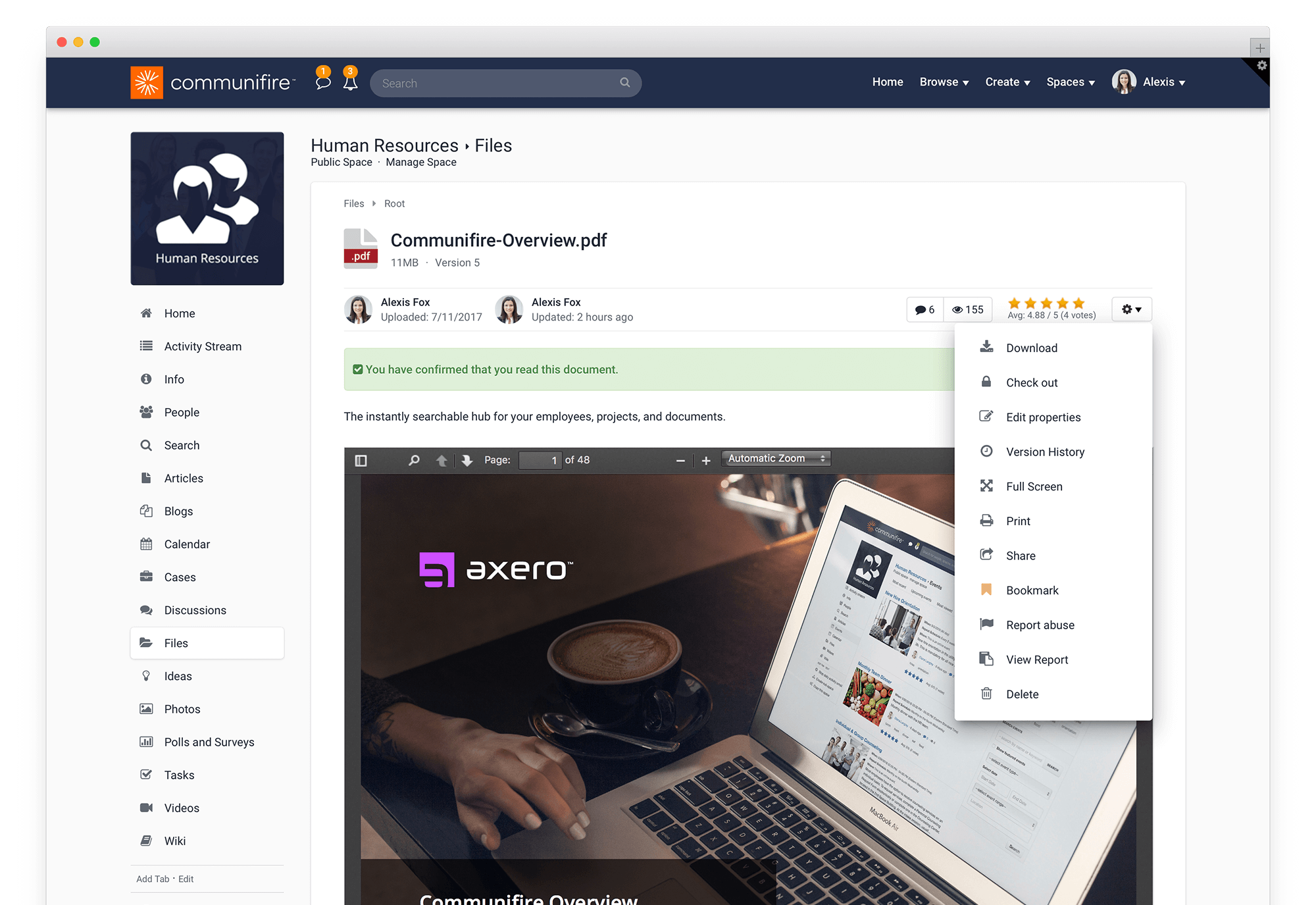
For new employees, it can be difficult to learn the ropes in a workplace. Your intranet is the perfect place to put together a uniform employee training program that every new person completes. Make internal knowledge accessible via documentation and training videos on your company intranet. Also, make sure your employee directory is up-to-date and Q&A forums are packed with information. This way, new members can easily find people and answers, and you'll keep effective communication flowing.
3. Assess your current internal communication strategy.

It's not easy to improve something if you don't know what's holding you back. Communication methods such as email, phone, messaging, and in-person meetings, are appropriate for different forms of communication. Email, for instance, probably isn't the most efficient way to find the answer to a quick and urgent question. That's why many organizations replace email with collaboration tools and intranet software. Make a list of your current internal communication methods and determine what's effective and what isn't. This way, you can figure out where to make some changes to how people communicate in the workplace.
4. Implement intranet software.

Intranet software is a top solution to improve workplace communication. Comprised with tools that streamline daily business processes, an intranet is also a robust internal communications platform with easy-to-use collaboration tools. It empowers employees to connect and share ideas in a judgement-free environment. The popularity of intranet software is growing at an exponential rate and is only becoming more intuitive to support every aspect of business.
5. Have an "open door" policy.
Having honest dialogue with managers and CEOs is a delicate—and challeninging—situation for many employees. Some feel uncomfortable being forthright with their boss, and as a result, sugarcoat opinions or do not speak up. An "open door" policy where your employees are encouraged to bring anything to your attention is an incredibly beneficial way to motivate employees and improve communication. It builds connections and encourages meaningful conversations so you can make positive changes to your workplace. If staff are not approaching you, always remember our #1 tip: reach out to your employees periodically.
6. Make internal documents and knowledge easily available.
Communication isn't just the verbal exchange of information between people. It's also information. No matter the job, document management and knowledge sharing are vital to everyday tasks and your employees need to find files, spreadsheets, and answers, easily. Centralize all of this information in your company knowledge base. To improve workplace communication, you need to prioritize how staff finds what they need to do their jobs.
7. Take advantage of social media.
Social media is a powerful aid for businesses communicating with customers and prospects. It also enhances internal collaboration. Encourage employees to "like", comment, and share interesting posts about your organization. This sparks conversations, educates employees about something they didn't know about, and boosts morale. You can also embed your social media channels into your intranet, so employees always know what your company is sharing with the public.

Allow employees to share their interests with each other to create meaningful, work-related conversations. This is a great way to combine relationship-building with your business's goals and philosophies.
8. Organize your departments.
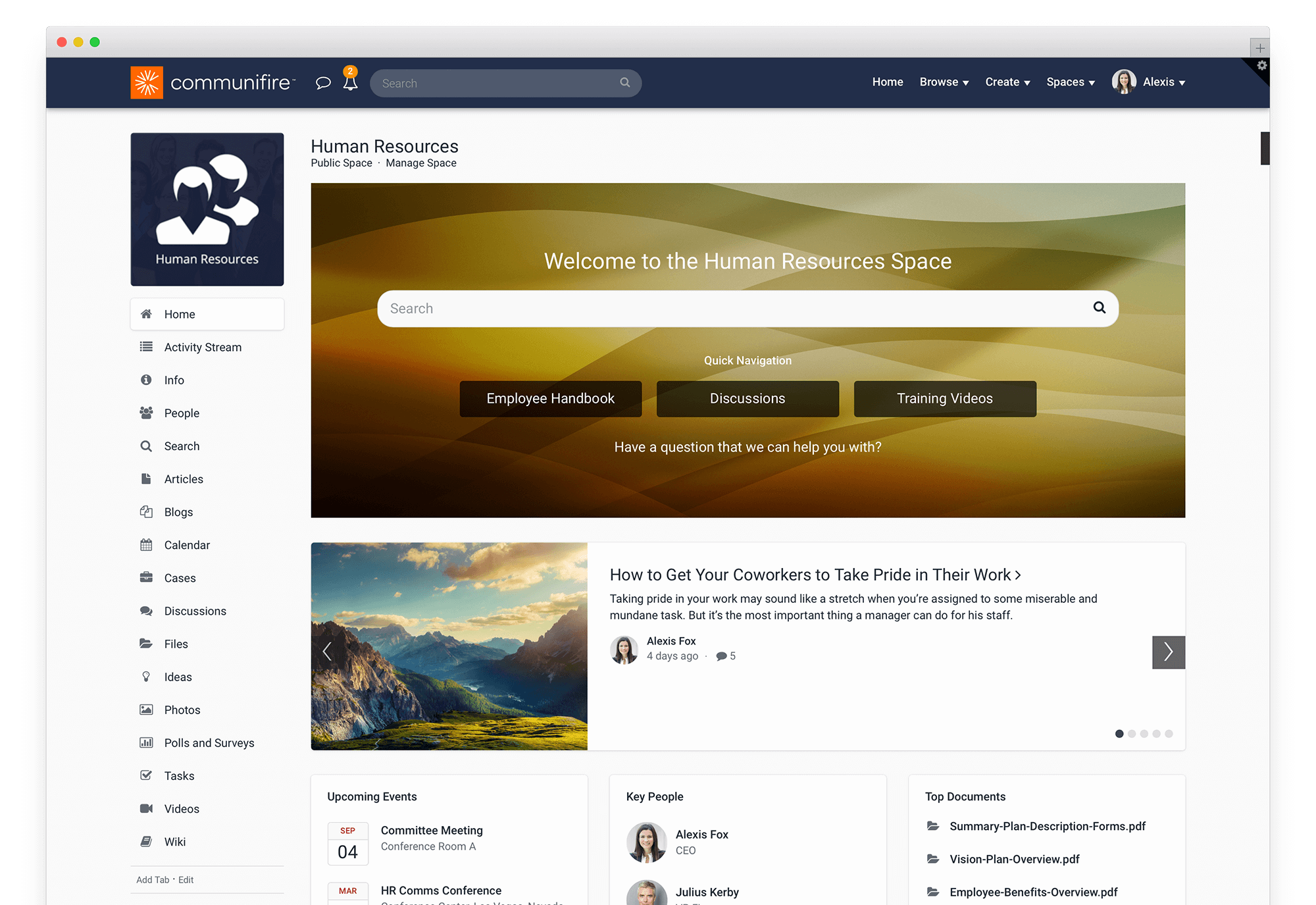
If finding department information difficult, you can't expect to have effective communication in the workplace. Use your intranet to segment teams into digital workspaces, so people and information in those departments are unified. It makes life easier for people looking for department-specific information and also for managers, who can instantly communicate with members by sharing documents and sending updates through a notification system. You want a system that is direct. Communication between directors and team members should be easy. And accessing documents, announcements, and people in a department should also be easy.
9. Create an internal language.
A fun little tip to improve workplace communication is to create an internal language. This can include acronyms or monikers to describe parts of your company culture or principles. It makes talking about work fun—and who doesn't want this? Adding your quirky language keeps things interesting throughout the week and subtly promotes more communication.

10. Identify a common goal.
Every organization has a common objective that motivates employees to show up everyday and do their jobs. By identifying, clarifying, and reinforcing this objective, you'll strengthen your staff's productivity because it's a reminder of why they joined your organization in the first place. Inspire, motivate, and keep teams on track. After all, there's nothing more important for a team than for everyone to be on the same page.
If you want some direction about how to inspire your employees, here's our compilation of the best TED Talks about effective communication in the workplace.
11. Reward jobs well done.
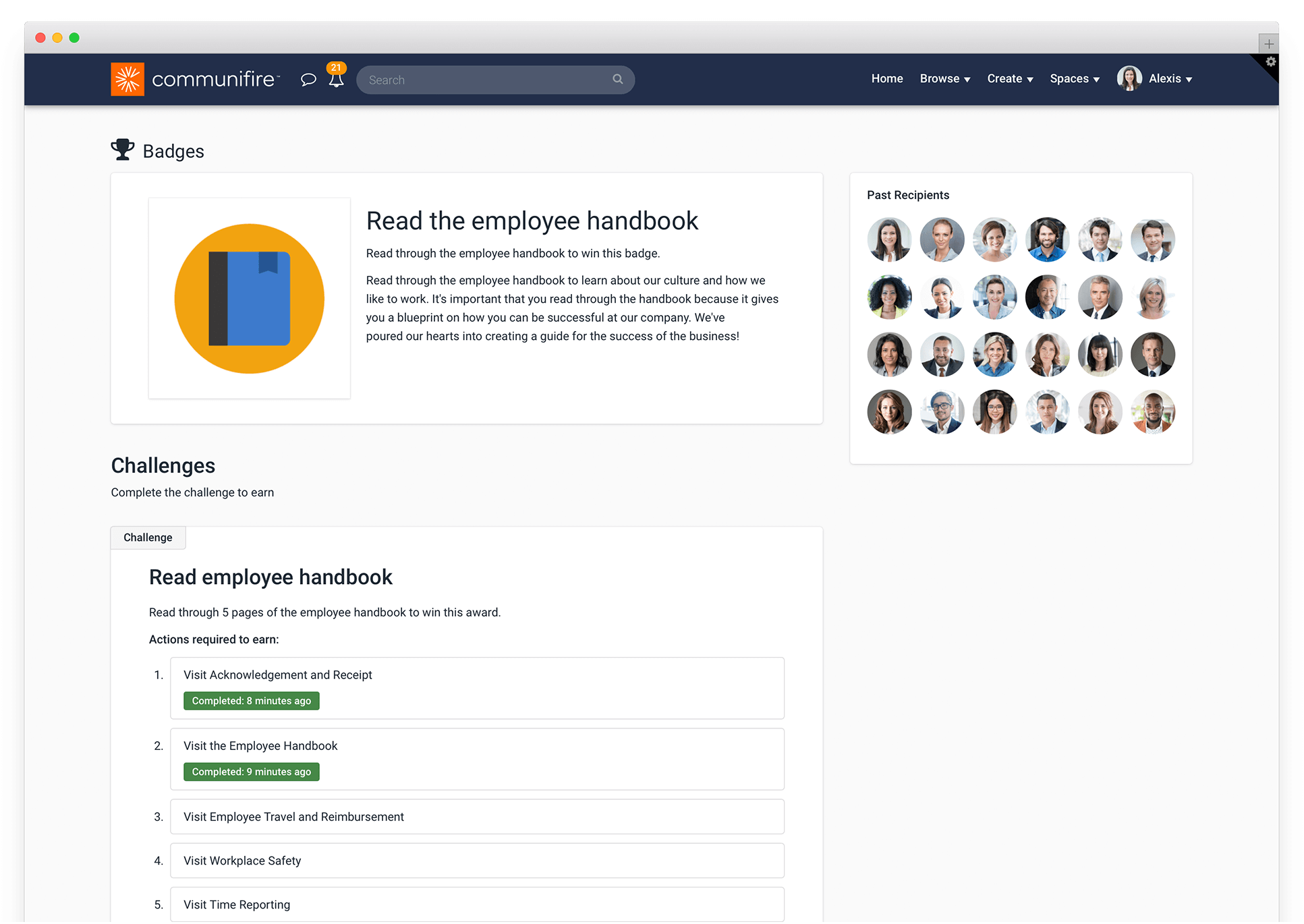
When expectations are set, people can deliver. Recognize your employees' efforts when they go above and beyond in a task or excel in a project. The impacts are twofold. First, it acknowledges and rewards good behavior. Humans like to receive recognition, especially when they work hard towards a goal. Secondly, it sets an example for other employees. Or in other words, it communicates expectations through action. There are a couple ways you can do this—if your intranet has gamification tools, you can reward points when people complete tasks or send "badges" when they take charge with projects. Of course, there's also the good old-fashioned "Good job".
12. Send out an internal newsletter.
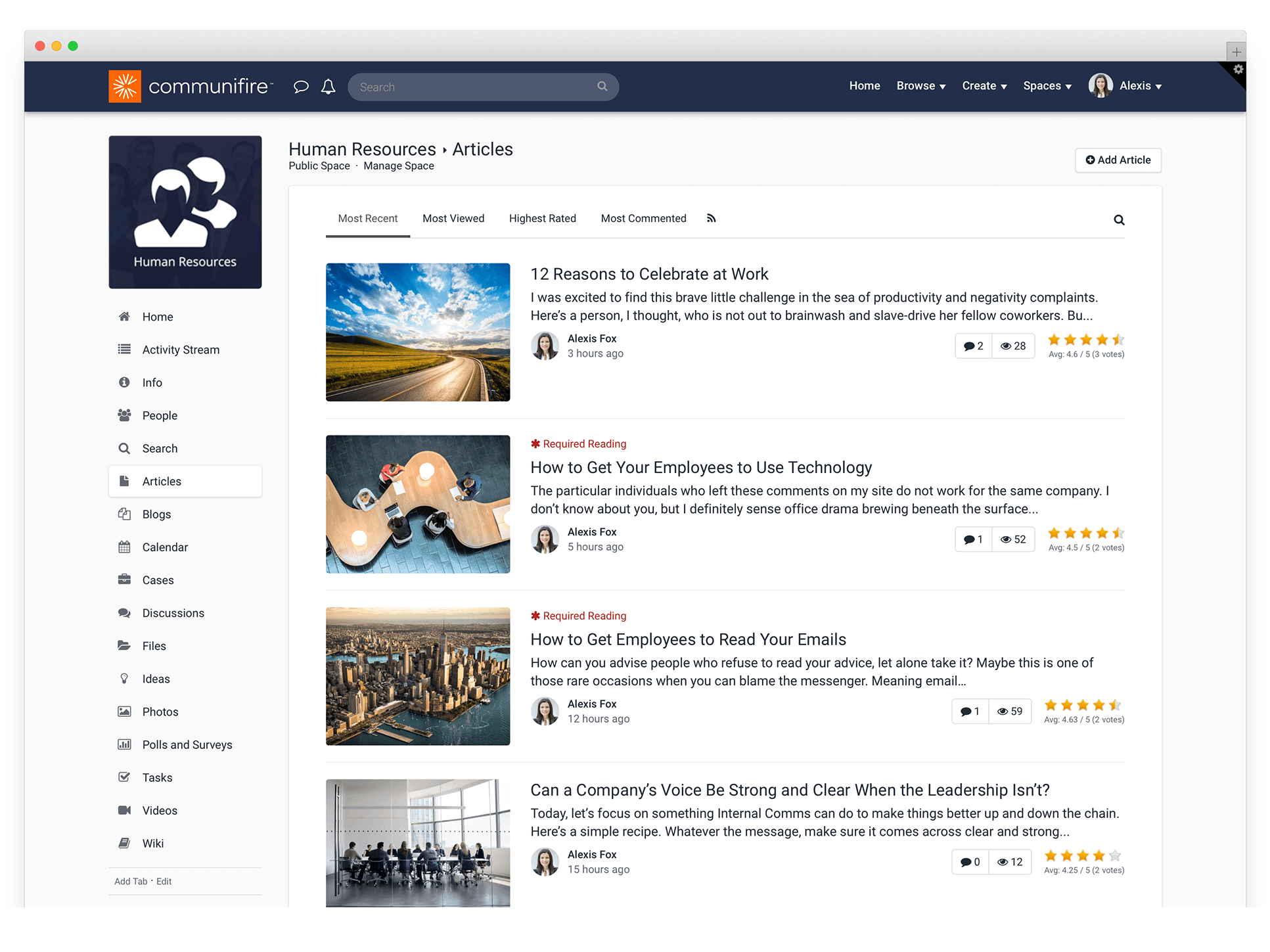
When work picks up, it's difficult for employees to keep tabs on what's happening in your organization. An internal newsletter is an excellent method for sharing company news and communications, whether it's small or monumental in nature. A lot of companies find weekly internal newsletters to be most effective, but you can experiment with how often you push them out. Avoid overloading inboxes with emails and post the newsletter on your intranet.
13. Rearrange your office.
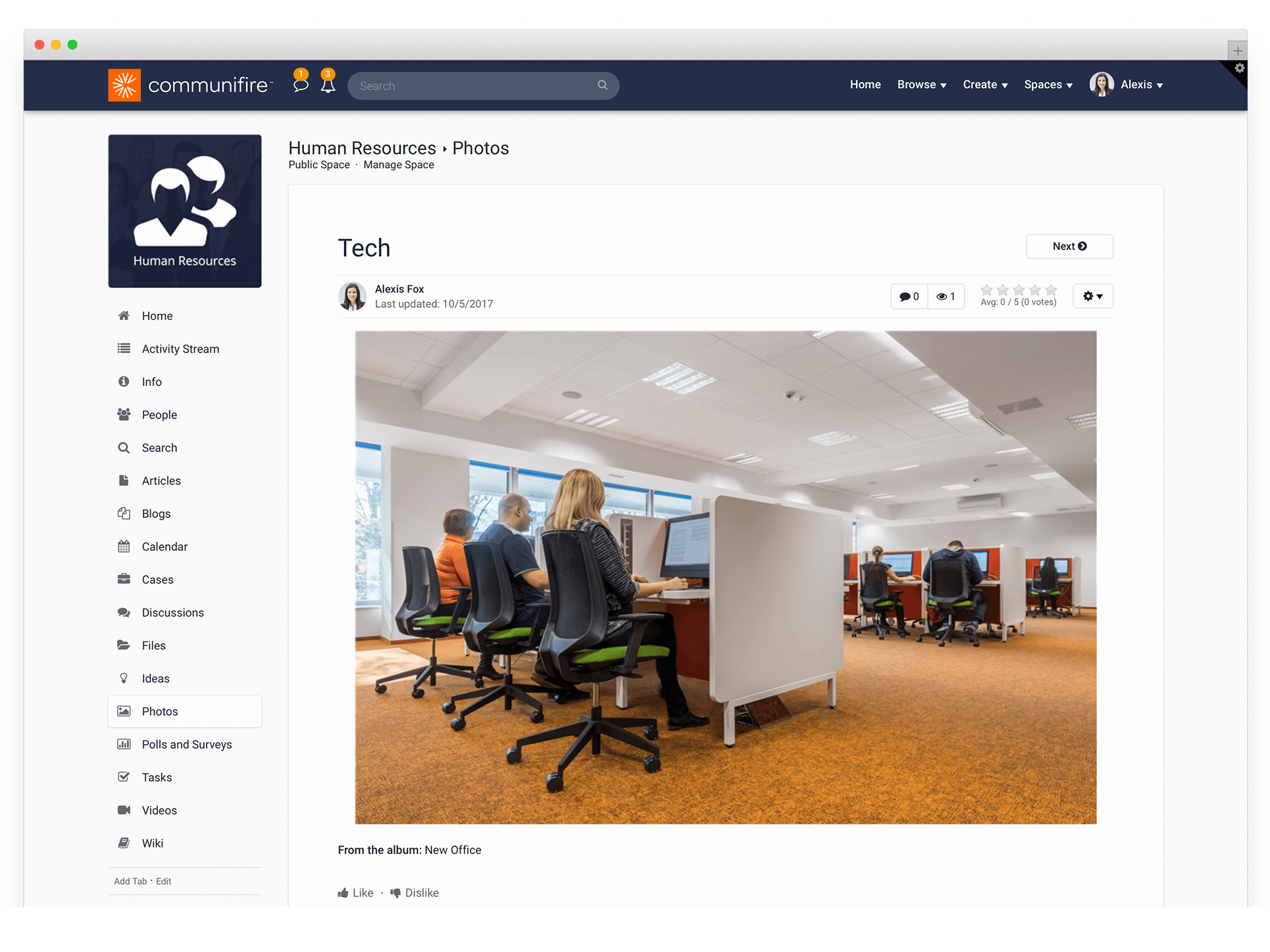
If you're working in a physical office, one of the best ways to improve communication in the workplace is by designing employee engagement into the floor plan. You'll want to avoid the typical cubicle or partition setup, which can isolate employees and put a damper on effective communication. Rearranging and opening up your workspace will encourage discussions and collaboration, not to mention make the office more enjoyable to work in.
14. Fill out employee profiles.
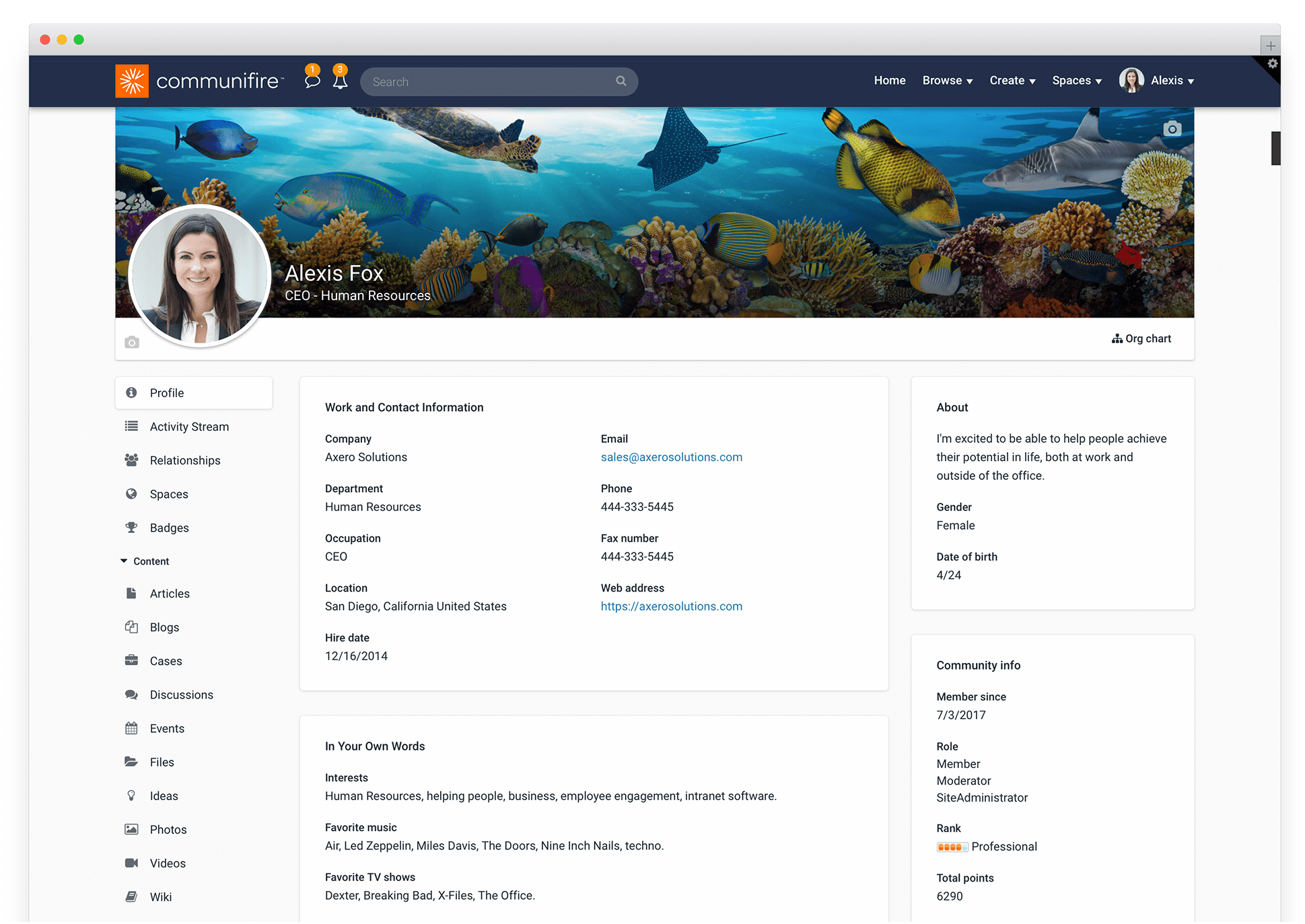
Effective communication in the workplace is nearly impossible if staff do not know who's who. Employee profiles will solve that problem. Encourage employees to fill out their employee profiles in your intranet. This goes beyond providing a name and email. Staff should also upload a photo, add personal interests, and list teams they are part of. Whether your business is large, small, or entirely remote, thoughtfully completed profiles will guide conversations and connections.
15. Focus on company culture.
Communication should be part of your company culture. It encourages employees to connect with each other and aligns them to your organization's goals. You can do this by implementing employee engagement ideas into the workplace. Also, promote your core values by branding your intranet, office decor, business documentation, and other places you can represent what your organization stands for.
16. Get outside of the office.
Spending hours and weeks on end in the office can take a toll on our mental health—especially during cold months. Sometimes all it takes is a change of scenery to perk people up and rejuvenate the energy. Leaving the office doesn't mean wasting valuable work time. Suggest a local coffee shop where your team can work or introduce periodic work-from-home Fridays. When you have the right tools, you can bring the workplace anywhere.
17. Schedule a work retreat.
Speaking of leaving the office, there are times when it's okay to pause work activity and schedule a fun team outing with your employees. Work retreats, such as picnics, hiking trips, or mini golf, are excellent options. These activities alleviate stressful workloads and improve internal communication in the workplace by taking a break from it all. Keep it casual and let your staff build closer bonds with each other.
18. Allow your employees the opportunity to recharge.
Working long hours can be exhausting, physically and mentally. Everyone experiences it… and when you're feeling burnt out, it's difficult to communicate effectively with others. Give your employees the opportunity to take breaks. A managed work-life balance helps people be happier and healthier. Whether this means longer lunches or occasional personal days, you'll get the best versions of your people when you loosen a stagnant environment and let them reboot.
19. Strengthen connections between managers and employees.
For businesses where employees and managers do not work closely with each other, it's common for employees to have quick interactions with their higher-ups. Change this. Encourage stronger collaboration between employees and managers. You'll bridge communication gaps by guiding stronger working relationships.

20. Have a trusted HR department.
Some companies have a challenging time making HR resourceful for staff. It's ironic because the purpose of the HR department is to serve the humans who work for you. Communication in the workplace will greatly improve if your department that handles internal concerns and policies is trusted by everyone. Make sure HR personnel are approachable and easily accessible. (Your intranet is the perfect place to centralize HR for your entire company.)
21. Don't chastise mingling.
Some managers and CEOs view breaks and socializing as a waste of time and money. This couldn't be farther from the truth. Humans by nature are social creatures and mingling is an essential aspect of relationship-building. You can't expect, and you should not want, all communication in the workplace to be strictly about work! This is how people to get to know each other and do their best work. If your employees feel like taking a mental break for an off-topic conversation, let them.
22. Discourage one-way communication.
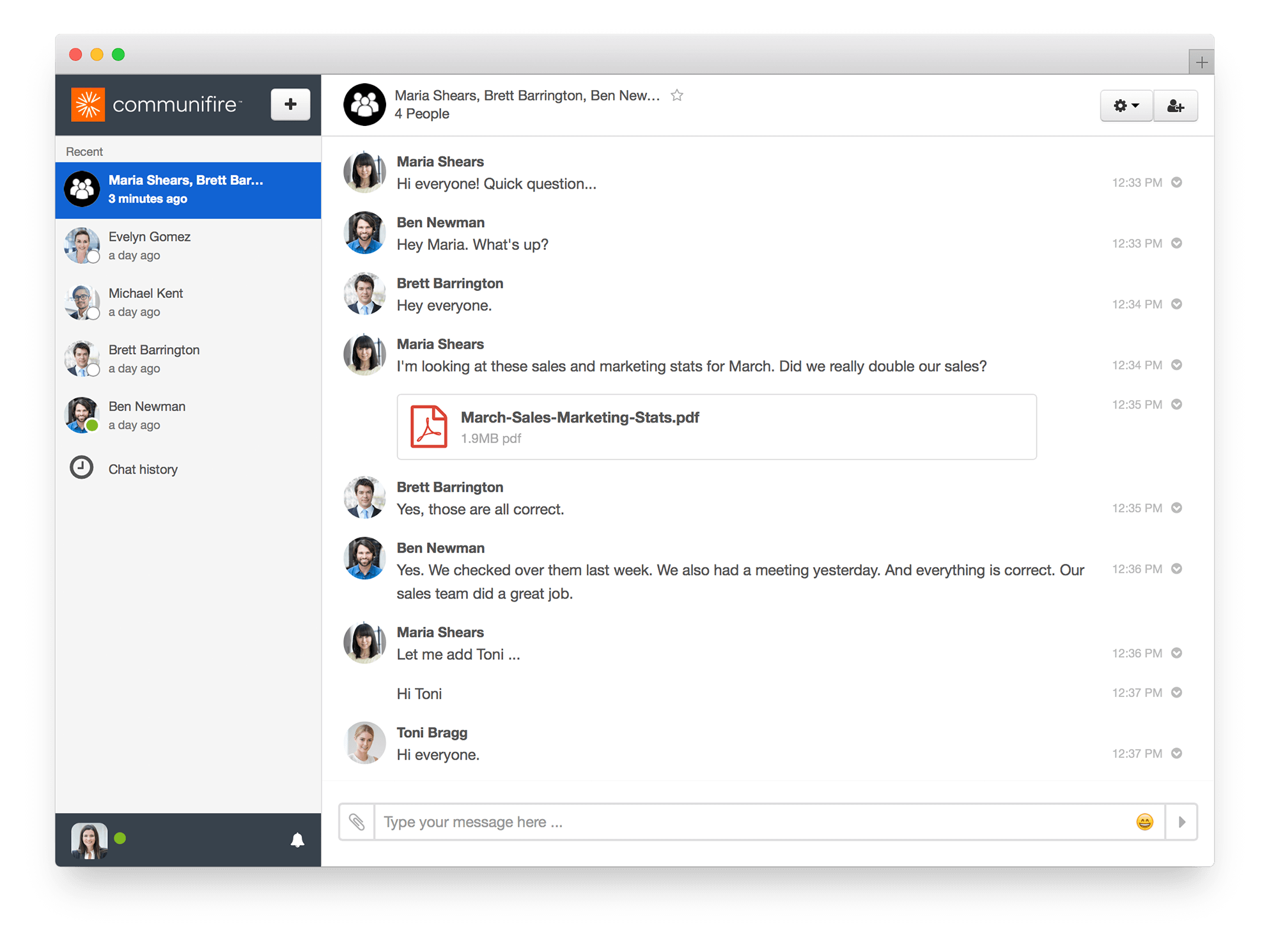
Many businesses take a top-down approach to communication in the workplace, which has been a common model for decades. One-way communication controls your message, but it's not going to serve you or your employees in the long run. There's no exchange or true dialogue. Instead, get your employees to speak their mind—you'll see a number of benefits by taking this approach. Ask for suggestions and feedback in meetings. Remember, effective communication is a two-way street.
23. Always share important news.
If you want strong communication, you need to communicate when it matters most, like during organizational change. Whether the news is pleasant or difficult, it's important you articulate the information honestly, sincerely, and as soon as you can. Sometimes this message is best delivered by a CEO, and other times by another leadership person. These are decisions you need to make beforehand. Always have a plan and be ready to listen to your staff's reactions.
24. Prioritize consistent content creation.
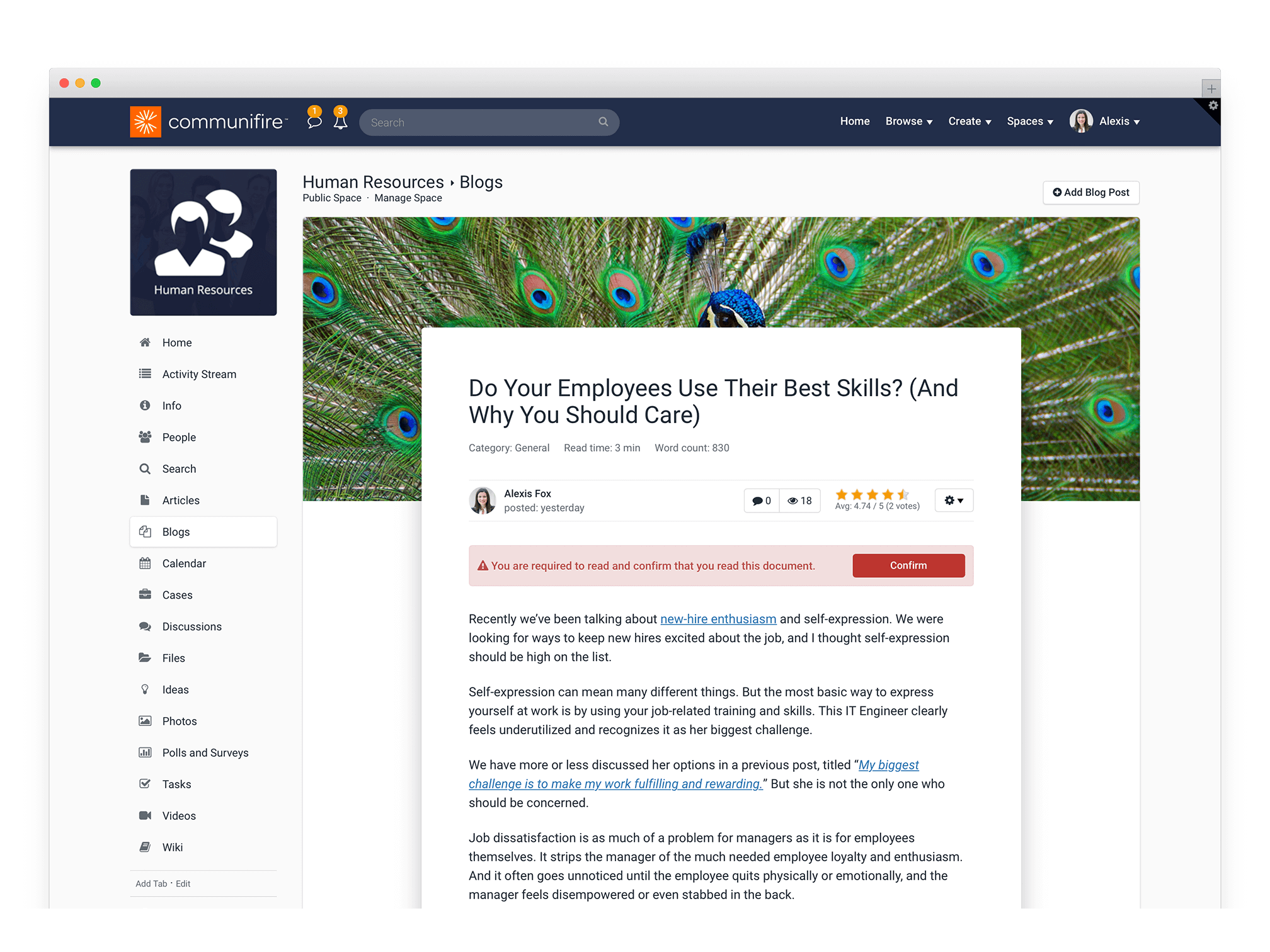
Creating blogs and wikis will strengthen knowledge sharing for internal and external groups in your organization. By encouraging your employees to create and publish quality content, you're empowering them to have a voice in the company, which in and of itself is a step closer to improving workplace communication. Plus, employees can "like" and comment on their coworkers' posts—another effective tool for facilitating productive discussions.
25. Display intranet content on monitors.
If your office has monitors in the building, use them to share information from your intranet. This is an easy and subtle way to engage employees with news and immerse them in your company culture. You can broadcast upcoming events, employees of the month, or announcements. Sometimes displaying information in a different place or format gets more traction. You'll have more unique ways to reach your employees—so consider adding this to your communication strategy.
26. Incorporate mobile technologies.

More than ever, people are using smartphones and tablets for everything. Since many employees find themselves outside of the office on a regular basis, you need to be able to reach and communicate with your employees outside of the workplace. A mobile intranet app will solve all your problems. No matter where employees are, documents, people, and information fit in their pockets.
27. Attend conferences as a team.
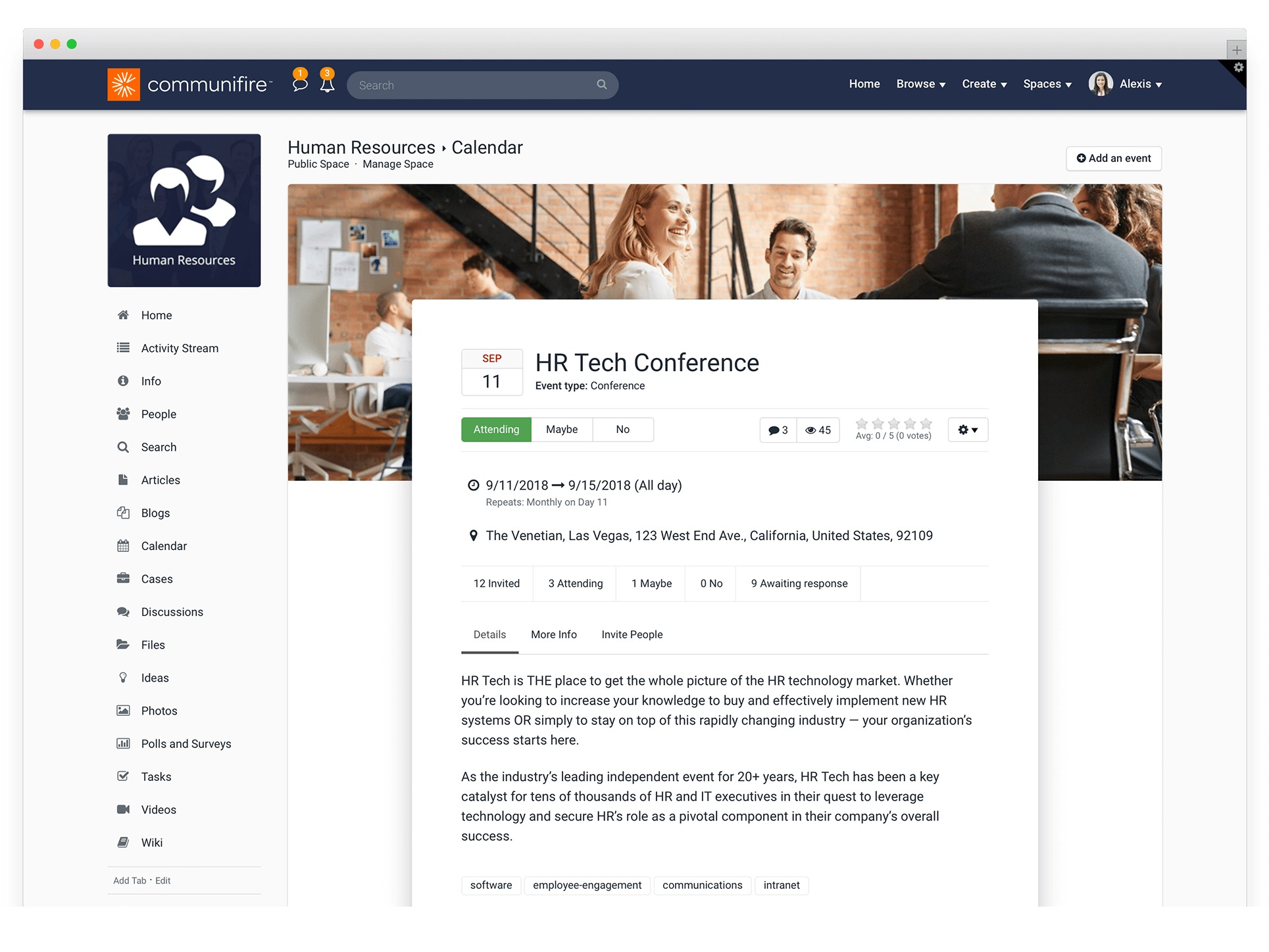
Most industries have conferences and conventions throughout the year. Invite your team. Attending conferences together is an excellent way to open up communication and learn together how your organization can move forward in your industry. Then, bring these experiences back to the workplace. As with any type of retreat, conferences are great for team-building, and can be financially sound if planned in advance.
28. Use a CRM platform.
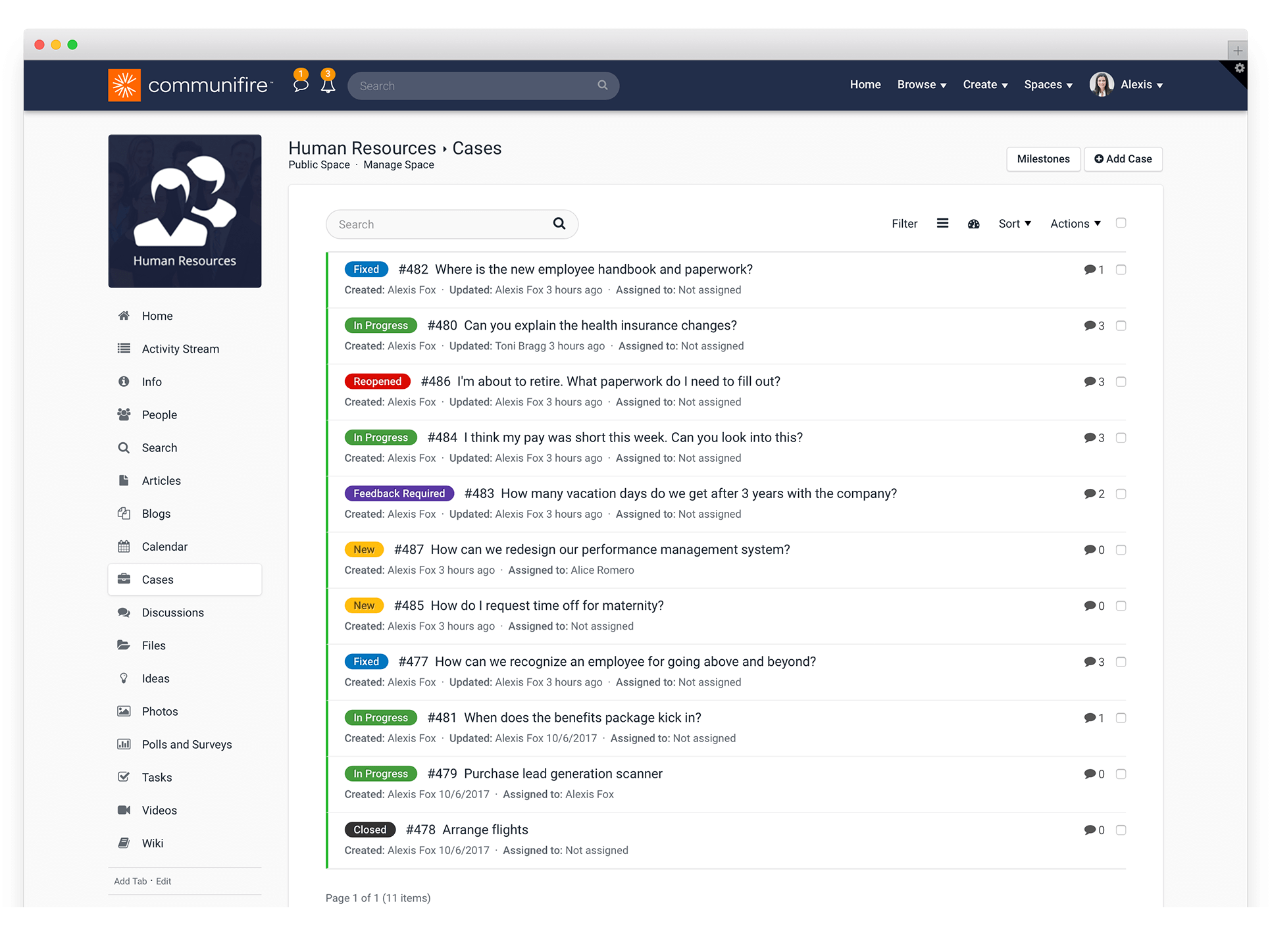
Whenever your company interacts with customers, make sure your employees have the most effective business communication tools to communicate with them. Using a CRM platform is a great way to track tickets or inquiries, which will accelerate turnaround time for customer support. Without strong tools, efforts could be duplicated, customer inquiries could go ignored, and your customer retention will suffer.
29. Track tasks.
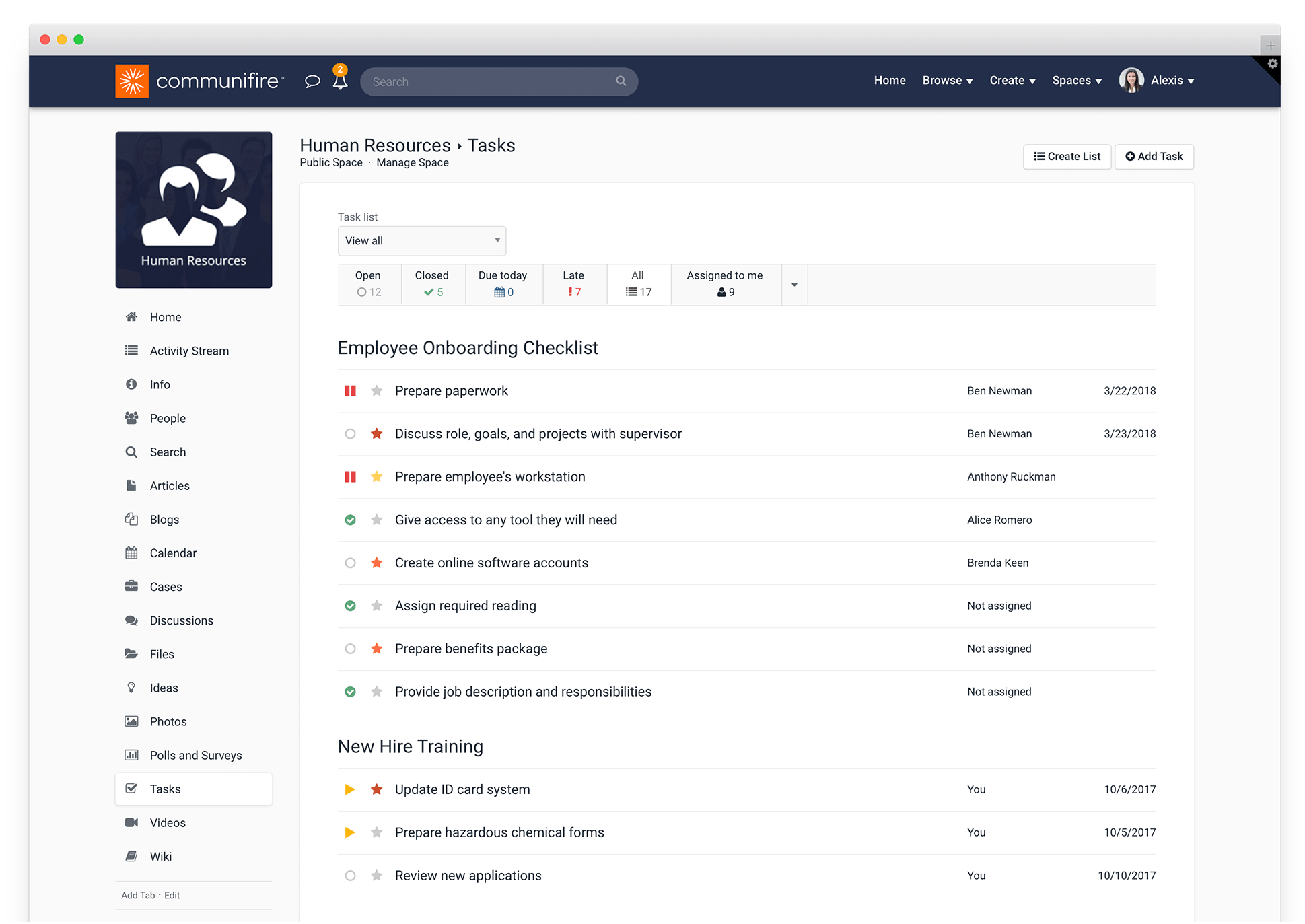
A record of tasks, due dates, and priorities makes sure everyone understands what they should be doing. This is particularly helpful when managing a lot of employees—and improves communication about projects. Expectations are clear and it eliminates confusion about who should be working on what. Use your project management tools in your intranet to assign and record projects. Always live by the philosophy that if it's not written down, it doesn't exist.
30. Schedule status meetings.
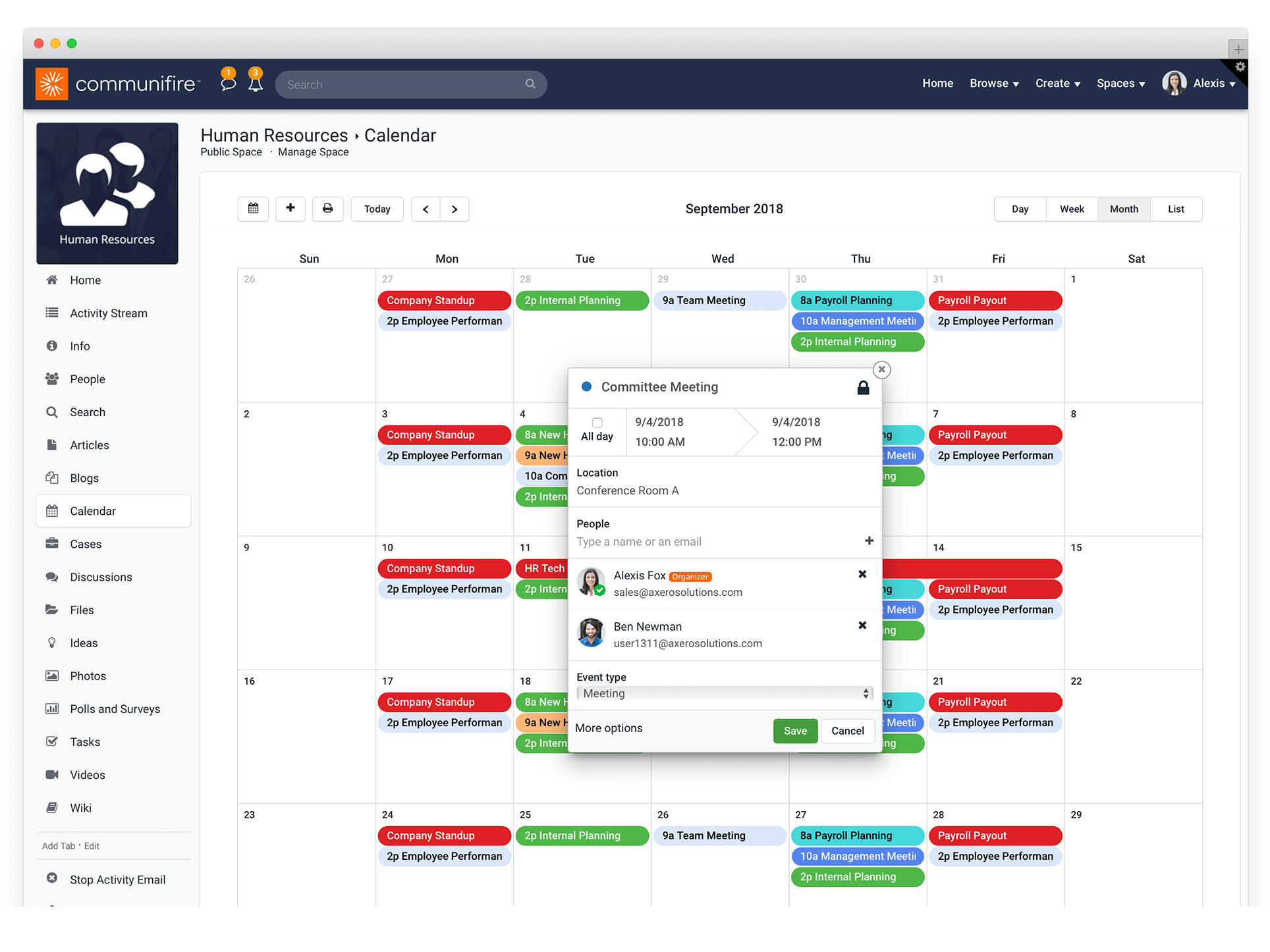
The more you can check in on teams about their tasks and current projects, the better. You can host daily or weekly status meetings in person, through teleconferences, or on the web… and they don't have to exceed 10 minutes. If everyone is located in the same time zone, try to schedule a meeting for the same time every morning. These meetings will remove pettiness and improve communication in the workplace.
31. Conduct stay interviews.
You might be wondering… what is a stay interview? We briefly mentioned it earlier in this post, but stay interviews are one-on-one meetings where managers, or others in a leadership position, chat with employees to figure out what's working or not working in their jobs and the company as a whole. The goal is to prevent unwanted turnover, improve communication in the workplace, and discover what needs fixing. Sometimes a stay interview can be the solution to problems you didn't know existed.
32. Identify and reach out to shy employees.
No matter how you cut it, some people are shy. Introversion is not a disease. In fact, introverts are just as valuable and adept at what they do as aggressive employees. Reach out to introverted employees and have conversations where they feel comfortable to share their ideas. You cannot improve communication in the workplace if you are missing a group of employees. Don't forget: this can be a lengthy process and shyness doesn't go away overnight.

33. Encourage video conferencing for remote employees.
When you're managing remote employees, building authentic relationships can be tricky. One solution to this all too common issue is video conferencing. It's as in-person as you can get when the workplace is remote. Schedule weekly video meetings to discuss work or to hang out. (Instant messenger, employee profiles, and activity streams are also some intranet tools that shortens the distance.) This is a great way to get to know the freelancers you work with and strengthen communication, especially if you plan on enlisting their services long-term.
34. Use anonymous suggestion forums.

It may sound old-school, but suggestion boxes are another way to improve communication at work. Go the virtual route and encourage discussion forums on your intranet where employees can share concerns, whether it's a trivial or major topic. People aren't always comfortable being vocal, especially on a public platform, so consider offering an anonymous option.
35. Value teamwork.
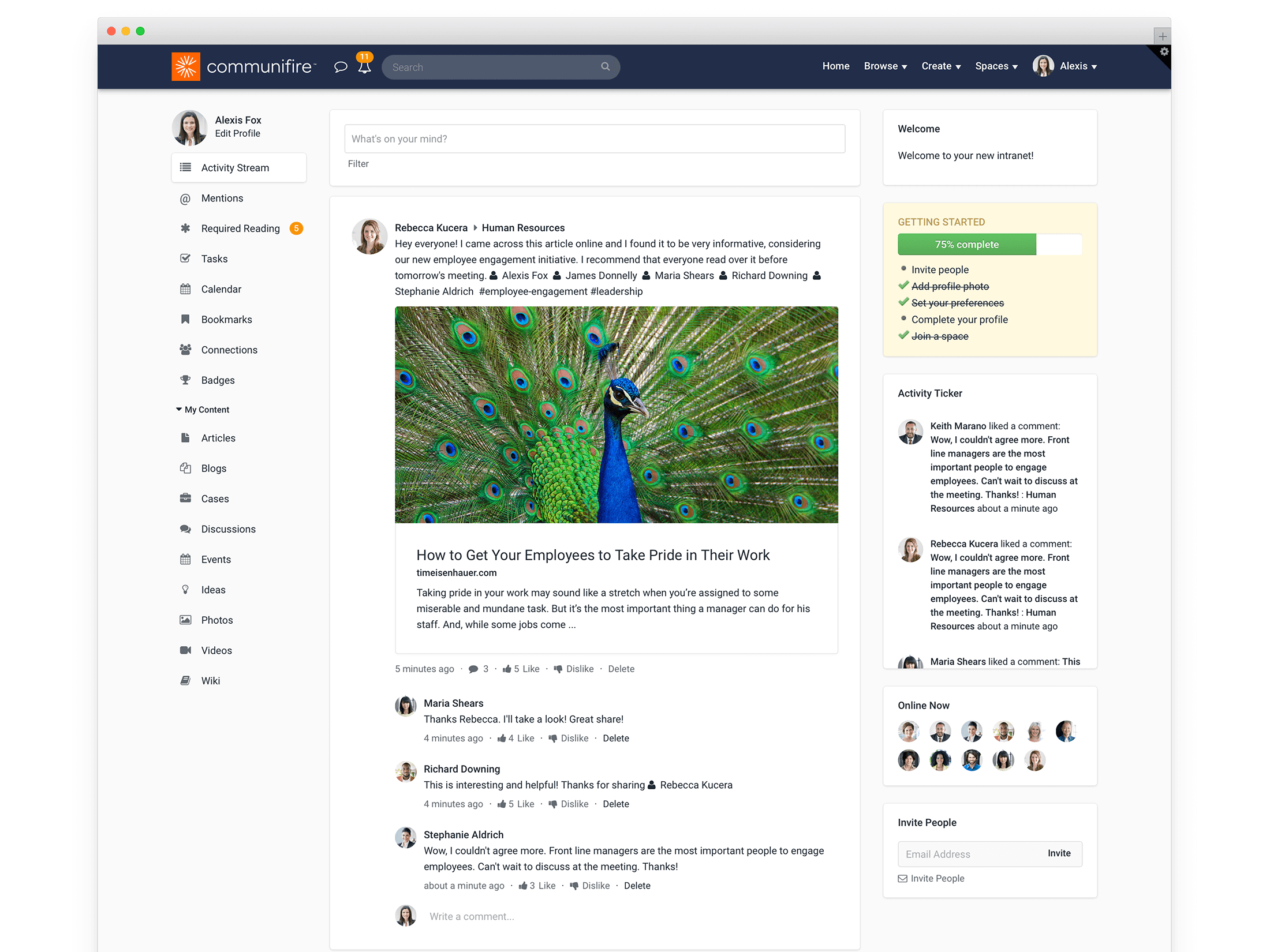
Sometimes with team projects, employees like to get their tasks done individually, with little communication with team members. Some people feel comfortable collaborating, others don't trust working with other people. How do you get employees to work together? Encourage teamwork with collaboration tools that boosts productivity. The workplace should be a place where employees communicate and work together. Asking your employees to take team-based approaches may cause initial discomfort, but a few minds are always better than one.
36. Take inventory of your own communication skills.
Every CEO wants their employees to communicate effectively, but what about their own skills? Lead without the ego. There's always room for improvement and especially in leadership roles, you need to balance opinions and take criticism, so you can inspire your staff to take pride in their work. The best way to serve as a model leader and improve communication is by constantly taking self-inventory and reassessing your own internal communication strategy.
37. Be personable.
Rigid environments do not benefit anyone. Of course you want a goal-oriented company that excels. But to truly have effective communication, you need to be personable and you need to be human. Open door policies, stay interviews, and company outings are great tactics to improve communication, but if your energy is cold, these efforts might fall flat. Try cracking a couple jokes, smiling occasionally, and making sure conversations are two-way streets. The last thing you want are unhealthy environments where employees dread coming to work.
38. Celebrate birthdays and anniversaries.

We've discussed how comfortable environments improve communication. The key is to treat employees like people. Announcing birthdays or work anniversaries are small gestures that builds a people-oriented community and makes staff feel valued and appreciated. Post a small announcement on your intranet homepage or host a company lunch-in. You'll find people will open up when you take an interest in their lives.
39. Send surveys.
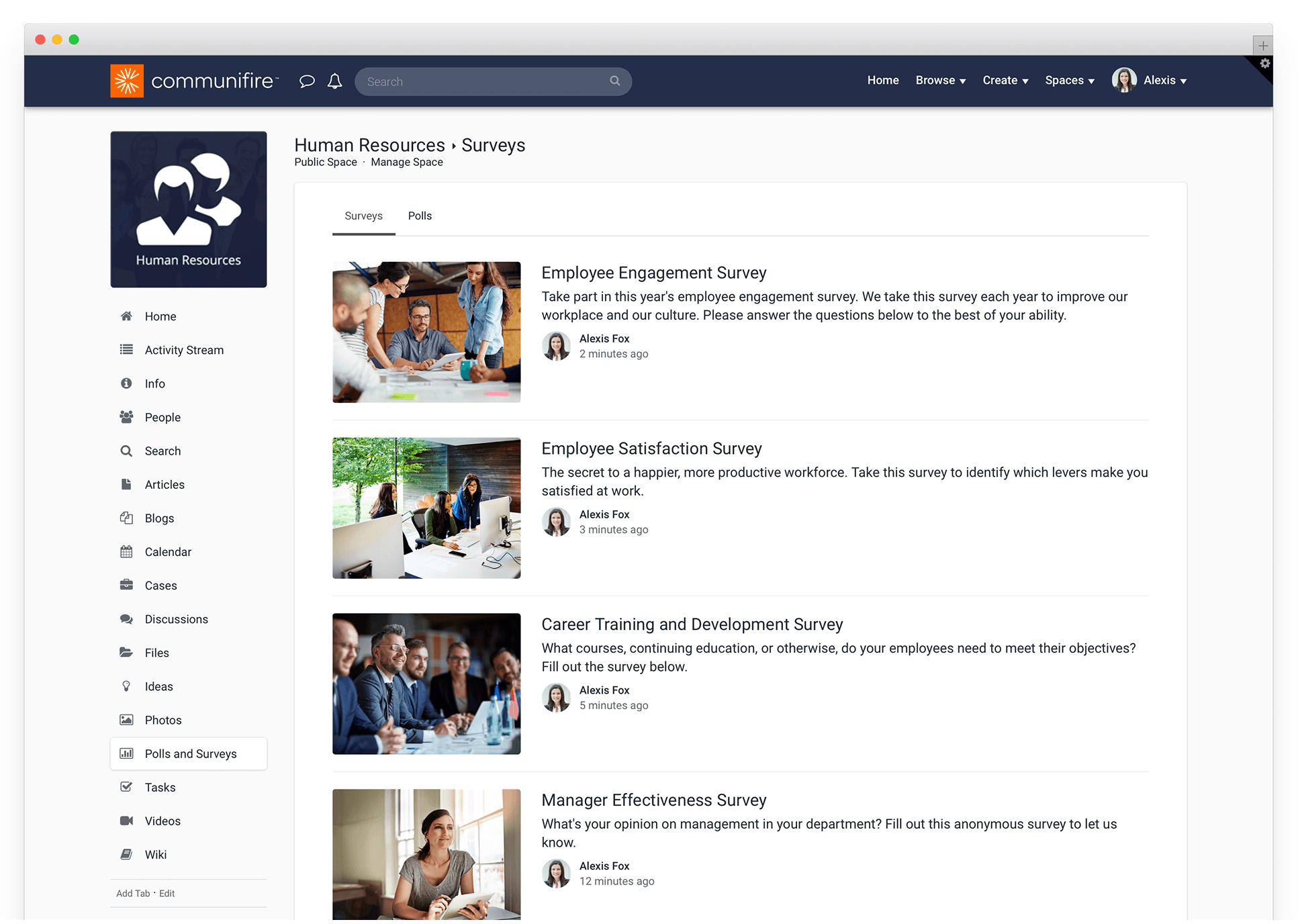
Regardless of the type of organization you run, every employee is different. Send a survey asking your employees how they like to receive internal information. This will help implement the most effective communication plan. (Do people prefer the intranet? Email? In-person meetings?) This is an easy way to ask direct questions and all the information can be logged automatically. In addition, your staff will appreciate that you care about them, which bodes well for employee morale.
40. Welcome questions.
We have a saying here at Axero Solutions: "If you have a question, ask. If you think it's silly, ask. If you think you know the answer, ask." Questions are one of the most fundamental components of effective communication in the workplace. Just as you should be asking questions, so should your employees. Instill that mindset in your organization. Make sure employees are comfortable to reach out with questions to you, managers, or each other.
41. Celebrate your achievements!
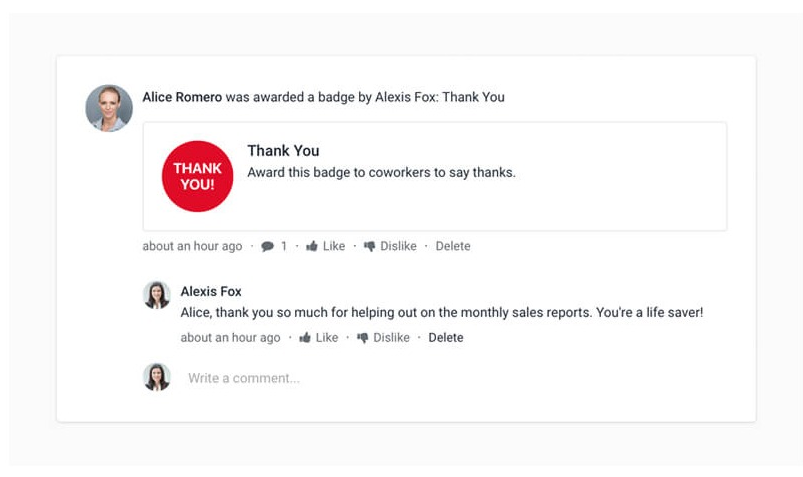
Improved employee communication benefits your entire business. Take a moment to celebrate at work. Compile data about your increased performance and productivity so you can share with the company. Acknowledge what you've achieved and and set new goals for the future. You did it!
In conclusion.
Improving communication in the workplace is a constant work in progress. It is a give-and-take relationship that requires patience, care, and the ability to listen. There are many approaches you can take but when you move forward with a plan, you'll notice a boost in employee engagement and productivity. Use the above tips to create a community founded on communication, growth and success, together.

What Is the Best Way to Communicate With Employees
Source: https://axerosolutions.com/blog/41-smart-tips-to-improve-communication-in-the-workplace

0 Response to "What Is the Best Way to Communicate With Employees"
Post a Comment